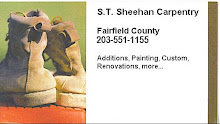
By Jennifer Openshaw
Last Update: 7:30 PM ET Feb 15, 2007
Last Update: 7:30 PM ET Feb 15, 2007
LOS ANGELES (MarketWatch) -- If you are an employee, you have little control over your tax destiny. Starting your own small business could change that a lot.
As a salaried employee you can play with 401(k) deferrals, cafeteria plans or maybe a health savings account or some other retirement plan if you qualify. Owning a rental property might also help. Other than that, you're pretty much locked in.
EARLY BIRD TAX GUIDETotal tax help
Our Tax Guide offers tips and stories to lead you through the filing season for your 2006 return, and get you ready for 2007.• 5 tips to make most of deductions• Navigating the unfathomable AMT• Don't miss these tax-law changes• Your Form 1099 may come late• Did you move? Take a tax breakGet Taxing Times newsletter free
But here's a secret -- and believe me, I know from experience: If you start a legitimate business, even a small one, the new tax levers you'll get can really work to your advantage.
Why? Small business and entrepreneurship are part of the American Dream, and Congress wants to help out. Make no mistake -- their real hope and desire is that some of those small businesses become big ones that hire lots of people and generate more tax revenue down the road.
Upshot: you might be surprised at what you, as business owner, can write off.
Here's how it works. With a "Schedule C" business, named for the tax form used to account for it, all legitimate costs of doing business are fair game to be written off. Now, especially if your business is home-based, the natural commingling of personal and business expenses opens new possibilities.
A few examples:
Operating expenses and supplies. Anything purchased to help in your trade counts. As a part-time business or marketing consultant, or even a real estate agent, costs of a Wall Street Journal or relevant magazine subscription can be deducted. Or, as a weekend wedding photographer, you buy a ladder for better shooting angles. That counts too -- even if you also use it to remove leaves from your gutters.
Travel. Depending on your business, travel may be deductible. Attend a conference or meet with a client -- and take the family along. Write off your individual expenses -- and since you'll need a hotel and rental car whether you're one or four, the family shares in the subsidy.
Vehicles. It's hard to write off an entire vehicle, but you can take the mileage deduction, currently 44 cents a mile, for legitimate business activities. Combine personal trips with that business purpose -- i.e. go to the post office and make other stops on the way, the whole trip counts. Ditto for that city trip to meet a client.
Home office. You need to do business somewhere, and if that somewhere is a separate room in your home you can deduct costs to outfit that room, plus a prorated portion of all home expenses. So if your office is 10% of your home and you spend $5,000 to repave the driveway, write off $500.
Other facilities. You have business records and computer backups that need to be stored somewhere. So rent a storage unit -- and if Grandma's old dining table ends up in there too, it still counts.
For those with a family and especially children old enough to perform business tasks:
Hire the kids. Your 12-year-old computer whiz could be a tax bonanza. Hire him or her to install software, back up computers or produce DVDs of your work. Pay a reasonable wage and expense it with no worries so long as the dependent's earned income stays under the standard deduction (currently $5,350). Sweeping floors or other more traditional pursuits also qualify. And don't forget Grandma and other relatives -- their deductible wages also stay in the family.
Fund an IRA. Extending the "kiddie" theme, instead of paying cash, you can fund their IRA. You get the deduction and they get off on the right foot financially.
Now, a caution: none of this is automatic. You must be prepared to justify expenses. This means good record-keeping. Special rules for vehicles, home offices and other items require familiarity. You'll have to allocate business use of some items like computers. If you use a PC to invoice once a month, and Junior plays "World of Warcraft" the rest of the time, be careful.
Having a Schedule C return makes you two to three times more likely to be audited. Enough said.
Is it really a business?
Start a business, and write off some of your life. Without earning one thin dime. Is that really possible?
Not quite. Just having receipts and records won't do it, especially if you're reporting a loss. Congress is no fool on this one -- everyone would start a business if it never had to be profitable.
So the rules, known as "hobby business" rules, stipulate that to write off business expenses, the business must earn a profit -- or at least have reasonable profit prospects. Translation: your business must be a real business.
For most businesses, the "3 in 5" rule applies. If a business turns a profit in 3 out of 5 consecutive years -- no questions asked; you're legally presumed to have a profit motive.
So if you run a loss for three straight years, you might invite a watchful eye. But you may still win the argument -- the IRS and tax courts have given leeway to businesses that by nature take longer to achieve profits. And it helps to keep a serious, professional look -- records, permits, licenses etc. An auditor needs to see it's more than a hobby.
And that it's more than a tax dodge.
What kind of business?
So what kind of business? That's another article. Small, part time home-based businesses that involve the whole family are a good place to start. Another natural path is to do something related to your current profession. According to "Weekend Entrepreneur" co-author Michelle Anton: "The best entrepreneurial businesses grow out of your special talents, skills and interests."
It's nice to make a little extra money. And deducting the expenses, if nothing else, makes that income nearly tax free.
But you may have greater ambitions. Naturally what you start today may turn into something really big someday. This magic lamp may lift you out of the "employee" world altogether.
Jennifer Openshaw, author of the upcoming book, "The Millionaire Zone," is CEO of winningadvice.com. She is also host of ABC Radio's "Winning Advice with Jennifer Openshaw" and appears frequently on such shows as the CBS Early Show and Good Morning America. E-mail her at Openshaw@winningadvice.com.









No comments:
Post a Comment